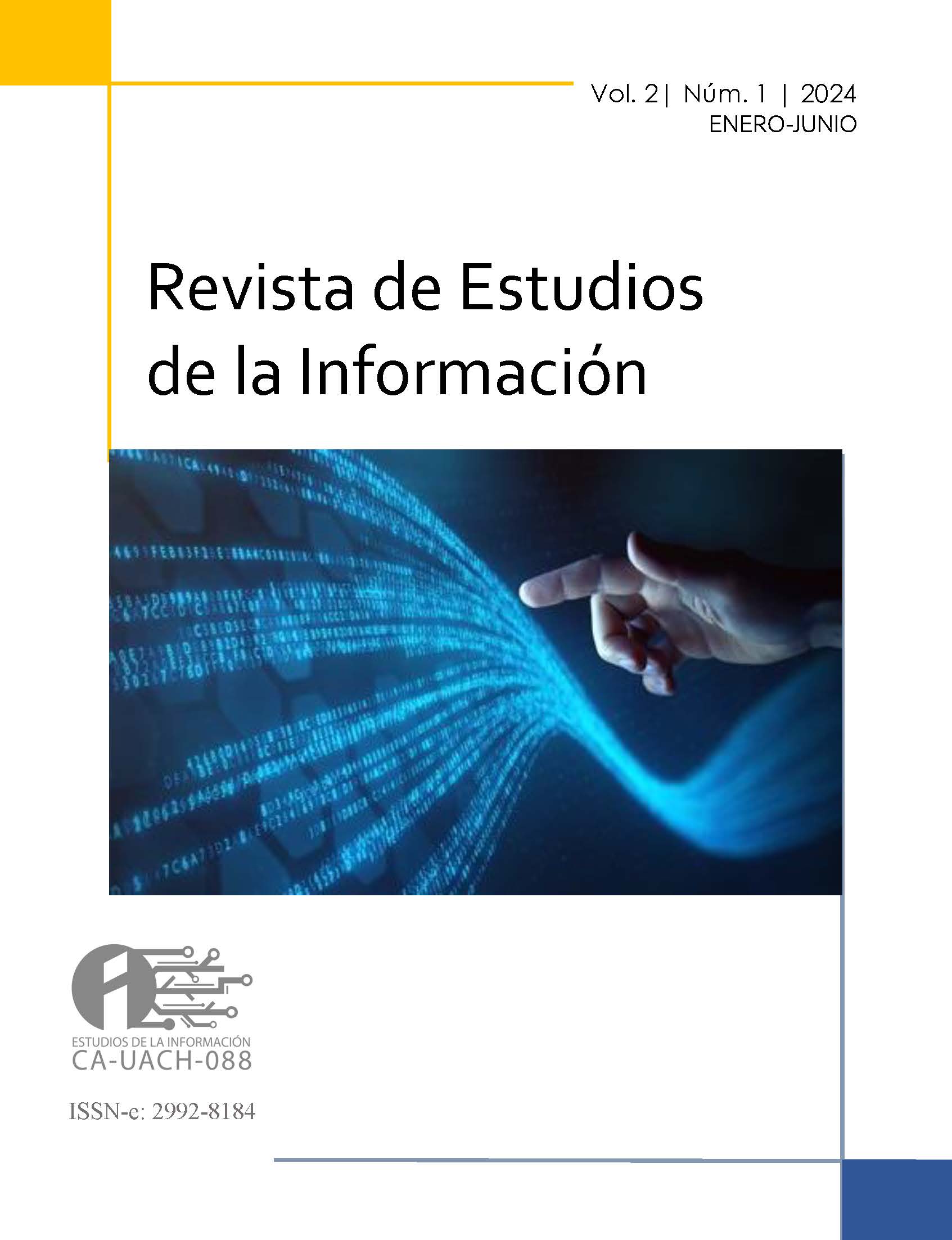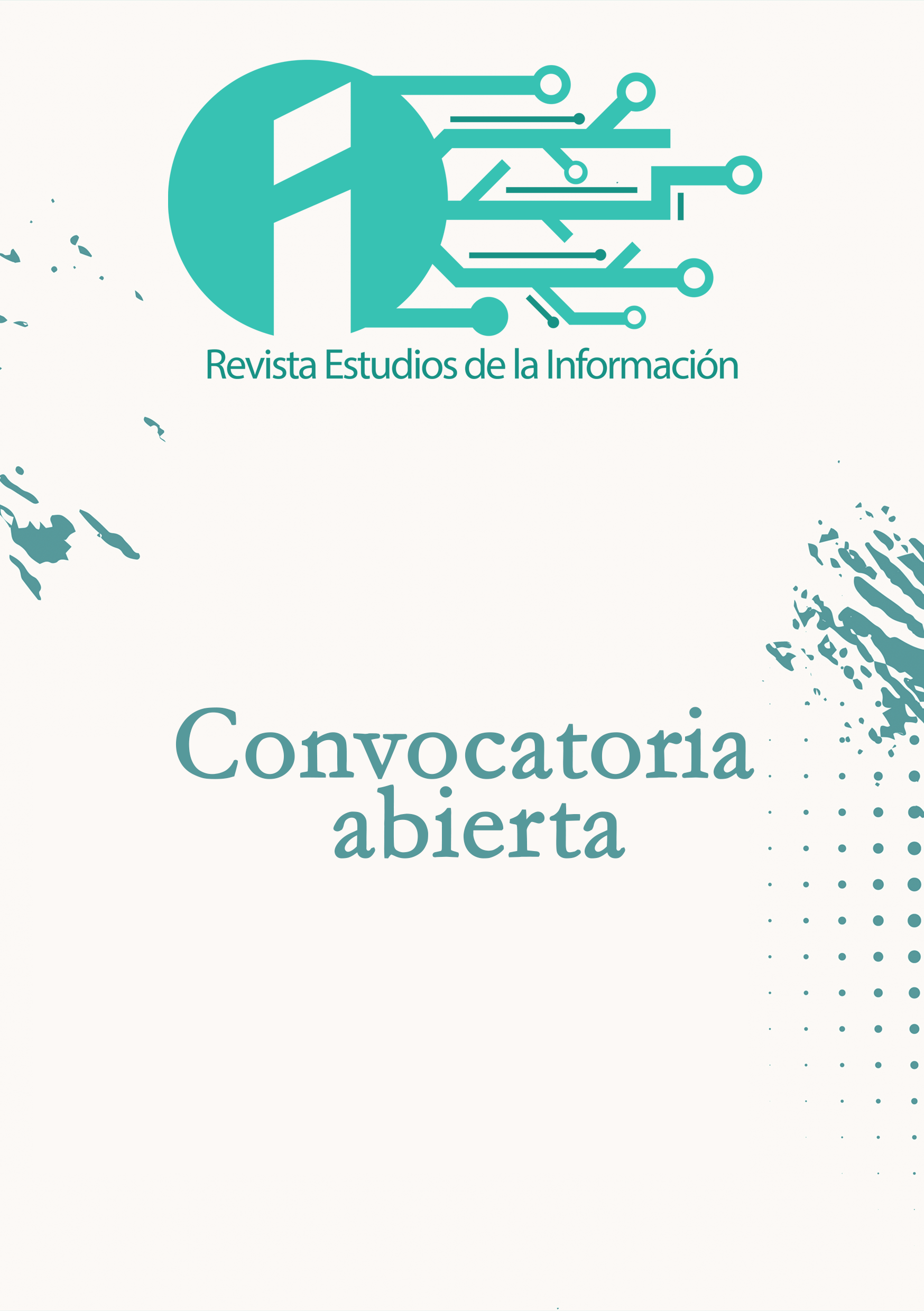Gobernanza educativa desde la pedagogía sistémica
El debate urgente sobre la influencia de las tecnologías en procesos formativos
DOI:
https://doi.org/10.54167/rei.v2i1.1379Keywords:
virtual environments, educational technologies, education, educational planning, information and communication technologiesAbstract
This article aims to seeks to encourage and promote the development of appropriate digital platforms and tools to face the current educational change that has strong geopolitical governance implications. As can be evaluated by the information analyzed within this article, as of 2020 we are in a technological revolution regarding the educational issue. The rise of digital platforms, Big Data and Chatbots is emerging as one of the main technological export industries of global powers. However, the issue goes beyond the context of the deep structural dependence that this commercial relationship represents. EdTech are designed as tools to promote corporate governance models that won´t only questions issues such as educational autonomy but also the sovereignty of National States. The conclusion points out the necessary and urgent attention required in the development of adequate educational platforms. This technology should evaluate the diversity human and student needs, taking in account their emancipation and decolonization. We search to contribute to debate of educational planning.
Downloads
References
Aguilar Romanillos, A. (2018). Bioeconomía y sociedad. Mediterráneo Económico, (31), 15-33. https://dialnet.unirioja.es/servlet/articulo?codigo=6648767
Aguirre, C. (2005). La “escuela” de los annales: Ayer, hoy, mañana (7a Ed.). Libros de Contrahistorias.
Alsharif, M., Kelechi, A., Albreem, M., Chaudhry, S., Zia, M., y Kim, S. (2000). Sixth generation (6G) wireless networks: Vision, research activities, challenges and potential solutions. Symmetry, 12(4). https://doi.org/10.3390/sym12040676
Beckert, J. (2016). Imagined futures. Harvard University Press.
Bernardos, C. J., y Uusitalo, M. A. (2021). European vision for the 6G network ecosystem. Ecosystem 5G AI, (1), 1-46. https://doi.org/10.13140/RG.2.2.19993.958499
Berten, J., y Kranke, M. (2022). Anticipatory global governance: International organisations and the politics of the future. Global Society, 36(2), 155-169. https://doi.org/10.1080/13600826.2021.2021150
Bhat, J., y Algahtani, S. (2021). 6G ecosystem: Current status and future perspective. IEEE Access, 1(19), 43137-43167. https://doi.org/10.1109/ACCESS.2021.3054833
Bhutoria, A. (2022). Personalized education and artificial intelligence in the United States, China, and India: A systematic review using a human-in-the-loop model. Computers and Education: Artificial Intelligence, 3, 100068 https://doi.org/10.1016/j.caeai.2022.100068
Birch, K., y Muniesa, F. (2020). Introduction: Assetization and technoscientific capitalism. En K. Birch, y F. Muniesa (Eds.), Assetization: Turning things into assets in technoscientific capitalism (pp. 1-43). Massachusetts Institute of Technology. https://goo.su/DrFv73V
Carayannis, E., Barth, T., y Campbell, D. (2012). The Quintuple Helix innovation model: Global warming as a challenge and driver for innovation. Journal of Innovation and Entrepreneurship, 1(2), 1-12. https://doi.org/10.1186/2192-5372-1-2
Chiu, T. K. F., Xia, Q., Zhou, X., Chai, C. S., y Cheng, M. (2023). Systematic literature review on opportunities, challenges, and future research recommendations of artificial intelligence in education. Computers and Education: Artificial Intelligence, 4, 100118. https://doi.org/10.1016/j.caeai.2022.100118
Ciolacu, M., Tehrani, A. F., Binder, L., y Svasta, P. M. (2018). Education 4.0 - artificial intelligence assisted higher education: Early recognition system with machine learning to support students' success. En IEEE 24th International Symposium for Design and Technology in Electronic Packaging (SIITME), Iasi, Romania (pp. 23-30). IEEE. https://doi.org/10.1109/SIITME.2018.8599203
De La Cruz, L. P., y Pérez, N. D. S. (2020). The school knowledge in biodiversity in terms of re-signifying its teaching. Praxis & Saber, 11(27), e11167. https://doi.org/10.19053/22160159.v12.n28.2021.11167
Deniau, L., Reolid, M., Rosell, V., y Tarragó, E. (2016). Pedagogia sistèmica: Un canvi de mirada. Comunicació Educativa: Revista d’ensenyament de les comarques meridionals de Catalunya, (29), 39-46. https://raco.cat/index.php/comeduc/article/view/322061
Department of Education of United State of America. (2023). Artificial intelligence and the future of teaching and learning. Insights and recommendations. Office of Education Technology of United State of America. https://www2.ed.gov/documents/ai-report/ai-report.pdf
Dukić, D., y Sovic Krzic, A. (2022). Real-time facial expression recognition using deep learning with application in the active classroom environment. Electronics, 11(88), 1-21. https://doi.org/10.3390/electronics11081240
Dyer-Whiteford, N. (2004). Sobre la contestación al capitalismo cognitivo: Composición de clase en la industria de los videojuegos y de los juegos de ordenador. En O. Blondeau, N. D. Whiteford, C. Vercellone, A. Kyrou, A. Corsani, E. Rullani, Y. M. Boutang y M. Lazzarato (Coords.), Capitalismo cognitivo: Propiedad intelectual y creación colectiva (pp. 49-62). Traficante de Sueños. https://goo.su/h5Es3S
Echeverría, J. (2009). Interdisciplinariedad y convergencia tecnocientífica nano-bio-info-cogno. Revista Sociologías, 22(11), 22-53. https://www.redalyc.org/pdf/868/86819548003.pdf
Foucault, M. (1999). Estrategias del poder: Obras esenciales (Vol. II). Paidós.
Fourcade, M., y Gordon, J. (2020). Learning like a state: Statecraft in the digital age. Journal of Law and Political Economy, 1(1), 78-108. https://doi.org/10.5070/LP61150258
Fromm, E. (2020). La revolución de la esperanza. Hacia una tecnología humanizada (27a ed.). Fondo de Cultura Económica.
Fumagalli, A. (2010). Bioeconomía y capitalismo cognitivo: Hacia un nuevo paradigma de acumulación. Carocci.
García-Canclini, N. (2019). Ciudadanos reemplazados por algoritmos. CALAS. https://goo.su/owsXUN
Guadamuz Delgado, J., Miranda Saavedra, M., y Mora Miranda, N. (2022). Actualización sobre neuroplasticidad cerebral. Revista Médica Sinergia, 7(6), e829. https://doi.org/10.31434/rms.v7i6.829
Hansen, M., y Komljenovic, J. (2023). Automating learning situations in EdTech: Techno-commercial logic of assetisation. Postdigital Science and Education, 5, 100–116. https://doi.org/10.1007/s42438-022-00359-4
Hashima, S., Fadlullah, A. M., Fouda, M. M., Mohamed, E. M., Hatano, K., Elhalawani. R. M., y Guizani, M. (2022). On softwarization of intelligence in 6G networks for ultra-fast optimal policy selection: Challenges and opportunities. IEEE Network, 37(2), 190-197. http://doi.org/10.1109/MNET.103.21005877
Ilkka, T. (2018). The impact of artificial intelligence on learning, teaching, and education. Publications Office of the European Union. http://doi.org/10.2760/12297
Illich, I. (2006). Obras Reunidas (Vol. 1). Fondo de Cultura Económica.
Kerssens, N., y Dijik, J. (2023). Governed by Edtech? Valuing pedagogical autonomy in a platform. Harvard Educational Review, 92(2), 284-303. https://doi.org/10.17763/1943-5045-92.2.284
Luhmann, N. (1998). Sistemas sociales: Lineamientos para una teoría general. Anthropos; Universidad Iberoamericana; Pontificia Universidad Javeriana. https://padron.entretemas.com.ve/cursos/Epistem/Libros/Luhman-SistemasSociales.pdf
Martínez, R., Palma, A., y Velásquez, A. (2020). Revolución tecnológica e inclusión social: Reflexiones sobre desafíos y oportunidades para la política social en América Latina. CEPAL. https://www.cepal.org/sites/default/files/publication/files/45901/S2000401_es.pdf
Mata García, B., Santos Cervantes, C., y Zepeda Moreno, M. E. (2024). Sociedades automatizadas y educación 4.0: Retos, perspectivas y contradicciones de pensarla formación humana como ingeniería social. Revista Latinoamericana de Estudios Educativos, 54(1), 165–188. https://doi.org/10.48102/rlee.2024.54.1.613
Morduchowicz, R. (2020). La ciudadanía digital como política pública en América Latina. UNESCO. https://unesdoc.unesco.org/ark:/48223/pf0000376935
Mulyadi, D., y Gusmian, I. (2022). Smart learning environment (SLE) in the fourth industrial revolution (IR 4.0): Practical insights into online learning resources. International Journal of Asian Business and Information Management, 13(2), 1-23. https://doi.org/10.4018/IJABIM.287589
Munir H., Vogel, B., y Jacobsson, A. (2022). Artificial intelligence and machine learning approaches in digital education: A systematic revision. Information, 13(4). https://doi.org/10.3390/info13040203
Nawaz, S., Sharma, S. K., Wyne, S., Patwary, M. N., y Asaduzzaman, M. (2019). Quantum machine learning for 6G communication networks: State of the art and vision for the future. IEEE Access, 1(7), 46317-46350. http://doi.org/10.1109/ACCESS.2019.2909490
Organización para la Cooperación y el Desarrollo Económico. (2015). OECD Learning Compass 2030. OECD. https://www.oecd.org/education/2030-project/teaching-and-learning/learning/learning-compass-2030/
Oomen, J., Hoffman, J., y Hajer, M. A. (2022). Techniques of futuring: On how imagined futures become socially performative. European Journal of Social Theory, 25(2), 252-270. https://doi.org/10.1177/1368431020988826
Ovalles Pabón, L. (2014). Conectivismo, ¿un nuevo paradigma en la educación actual? Mundo FESC, 4(7), 72-79. https://goo.su/AYV0
Pfotenhauer, S., Laurent, B., Papageorgiou, K., y Stilgoe, J. (2022). The politics of scaling. Social Studies of Sciences, 51(1), 3-34. https://doi.org/10.1177/03063127211048945
Quijano, A. (2007). Colonialidad del poder y clasificación social. En S. Castro-Gómez y R. Grosfoguel (Comps.), El giro decolonial: Reflexiones para una diversidad epistémica más allá del capitalismo global (pp. 93-126). Siglo del Hombre Editores; Universidad Central, Instituto de Estudios Sociales Contemporáneos; Pontificia Universidad Javeriana, Instituto Pensar.
Ríos, C. (2020). La influencia sobre el comportamiento y la ‘asetización’ de la privacidad como asunto contemporáneo que concierne a la regulación del comercio de dispositivos electrónicos. Revista de Derecho Privado, (39), 263-299. https://www.redalyc.org/journal/4175/417564980010/
Rodríguez, A. G., Rodrigues, M., y Sotomayor, O. (2019). Hacia una bioeconomía sostenible en América Latina y el Caribe: Elementos para una visión regional. Organización de las Naciones Unidas. https://repositorio.cepal.org/server/api/core/bitstreams/f23d8b68-db93-4013-8556-18ab4061d01e/content
Sales Gelabert, T. (2009). Modernidad, política y globalización: La teoría social y política de Ulrich Beck [Tesis de Doctorado, Universitat de les Illes Balears]. CORA TDX: Tesis Doctorals en Xarxa. https://www.tdx.cat/bitstream/handle/10803/126301/ttsg1de1.pdf?sequence=1
Schwab, K. (2016) La cuarta revolución industrial. World Economic Forum; Debate. https://goo.su/bL90Cq
Siemens, G. (2004). Conectivismo: Una teoría del aprendizaje para la era digital. https://ateneu.xtec.cat/wikiform/wikiexport/_media/cursos/tic/s1x1/modul_3/conectivismo.pdf
Siemens, G. (2010). Conociendo el conocimiento. Nodos. https://ia600805.us.archive.org/1/items/2010ConociendoElConocimiento/2010_conociendo-el-conocimiento.pdf
Vilar Martín, J. (2021). Pedagogía sistémica. Educació Social. Revista d’intervenció socioeducativa, (77), 205-206. https://raco.cat/index.php/EducacioSocial/article/view/388789
Wallerstein, I. (2004). Capitalismo histórico y movimientos anti-sistémicos: Un análisis de sistemas mundo. Akal.
Williamson, B. (2022). Big EdTech. Learning, Media and Technology, 47(2), 157-162. https://doi.org/10.1080/17439884.2022.2063888
Williamson, B., y Komljenovic, J. (2023). Investing in imagined digital futures: The techno-financial ‘futuring’ of EdTech investors in higher education. Critical Studies in Education, 64(3), 234-249. https://doi.org/10.1080/17508487.2022.2081587
Williamson, B., Eynon, R., y Potter, J. (2020). Pandemic politics, pedagogies, and practices: Digital technologies and distance education during the coronavirus emergency. Learning, Media and Technology, 45(2), 107-114. https://doi.org/10.1080/17439884.2020.1761641
Williamson, B., Gulson, N. G., Perrotta, C., y Witzenber, K. (2022). Amazon and the new global connective architectures of education governance. Harvard Educational Review, 92(2): 231–256. https://doi.org/10.17763/1943-5045-92.2.231
Yrjölä, S., Ahokangas, P., y Matinmikko-Blue, M. (2020). Sustainability as a challenge and driver for novel ecosystemic 6G business scenarios. Sustainability, 12(21), 8951. https://do i.org/10.3390/su12218951
Zeeshan, K., Hämäläinen, T., y Neittaanmäki, P. (2022). Internet of things for sustainable smart education: An overview. Sustainability, 14(7), 4293. https://doi.org/10.3390/su14074293
Zepeda Moreno, M. E. (2022). 2030: La gran escuela: Principios teóricos para una pedagogía sistémica. Revista Educación, Política y Sociedad, 7(2), 326-354. https://doi.org/10.15366/reps2022.7.2.014
Zepeda Moreno, M. E. (2023). Sociedades automatizadas. Géneris Publishing.
Downloads
Published
How to Cite
-
Abstract86
-
PDF (Español)61




